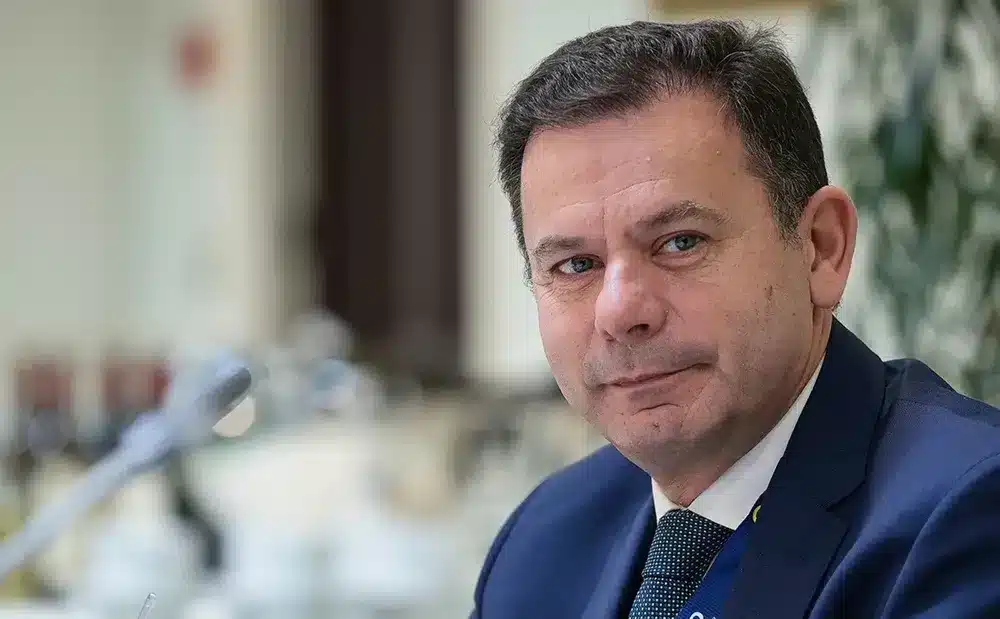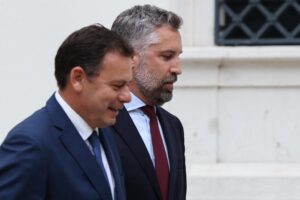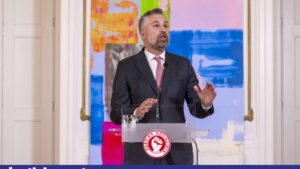Budget to be delivered to parliament by 1pm tomorrow; presented to press at 4pm
Portugal’s prime minister has said he is convinced that parliament will approve the state budget for 2025, in spite of all the ongoing dramas.
He has also dismissed the idea of negotiating with the country’s third-largest party, CHEGA, which he described as behaving “like a weather vane”.
In interview with SIC television last night, Montenegro announced that work on the budget document “is closed”; the final version will be approved in a cabinet meeting today, with agreement with the PS on IRS Jovem – lower rates of personal income tax (IRS) for people aged up to 35 – but not over planned cuts to corporate income tax (IRC).
He said he is leaving it up to PS Socialists to decide whether or not to abstain or vote in favour of the bill to allow it to go through.
But, whichever way Socialists vote, the PM said he is convinced the budget will be approved.
“My full conviction is that it will go through,” he said. “We’re going to have a state budget for 2025. And we’re going to have a balanced state budget.“
The PSD leader argued that the document is not diminished “by concessions (made) to the PS” – in fact, it is “more balanced” with regard to the final measures relating to IRS Jovem (which involve more progressivity in terms of income, and decrease the number of years that people can take advantage of the regime to 10).
“I have no trouble recognising that,” he stressed.
Asked about CHEGA’s position if the PS chooses to vote against the budget – Montenegro suggested that members of parliament from the party led by André Ventura will do “whatever they want” when it comes to it.
“The different question is whether there will be any negotiation between the government and CHEGA – because that is completely out of the question,” he reiterated previous pledges. “That is not going to happen: it is not possible to have productive dialogue with someone who changes his mind so often… with someone who has become a weather vane in this discussion, and, therefore, has not presented himself in a position to even be able to negotiate with the government.”
Asked if, even without negotiation, CHEGA could help make the document go through, Montenegro replied: “I’m frank, if that possibility were to happen, it wouldn’t bother the government in the slightest.
“The government needs the budget to be able to implement its programme,” he said, saying that such a move by CHEGA “would show a game” that nobody would understand.
Montenegro took the opportunity offered by the interview conducted by journalist Maria João Avillez, to stress that when he stops being prime minister, he does not intend to continue in politics.
“What I’m doing will be my last contribution to politics; I don’t want to do anything else,” he said. “I’m here with total detachment and I want the country to know this, I won’t be anything else in politics after being prime minister.”
He described himself as “a transformer” and “a politician from top to bottom”, as opposed to being a technician or technocrat.
Asked if it is possible to undertake the reforms that he wants with a parliament as fragmented as the one he has, Montenegro replied that in Portugal’s political system “not everything depends on parliament” to get things done.
“The government governs; the government has a very broad area of intervention and decision – and that’s what I’m going to do,” he said. “I have a lot of respect for the other sovereign bodies, particularly the Assembly of the Republic (parliament) … but I don’t govern thinking about parliament; I don’t govern thinking about what the parties in parliament might say about my decisions; I govern thinking about the people.“
Mr Montenegro said that this was the expectation of those who voted for the AD (Democratic Alliance) coalition that he led into the legislative elections earlier this year – adding that, depending on the results achieved by the government, voters will either withdraw or reinforce their votes in the next elections, which he hopes will not be until 2028.
“The electorate is very intelligent,” Mr Montenegro concluded. “I think the country is realising the government and the prime minister that it has.”
The budget will be delivered to parliament at 1pm tomorrow, to be presented to the press by the finance minister three hours later.
The ‘general debate’ on the budget will go ahead on October 30-31, with final voting scheduled for November 28.
President Marcelo has already said that if the budget does not pass, he will feel compelled to dissolve parliament and call the third legislative elections in as many years – a scenario which no political commentator can see as helpful for the country, bearing mind both the national situation and what is happening elsewhere in the world.
At this 11th hour stage, opposition parties are still ‘adding to tensions’, with Socialists saying they have not decided how they will vote (or even if they will vote in unison), and Iniciativa Liberal, the country’s 4th largest party, saying it doesn’t like the budget and may well vote against it.
All the smaller left-wing parties have said that they are against the measures in the state budget.
Source: LUSA




















